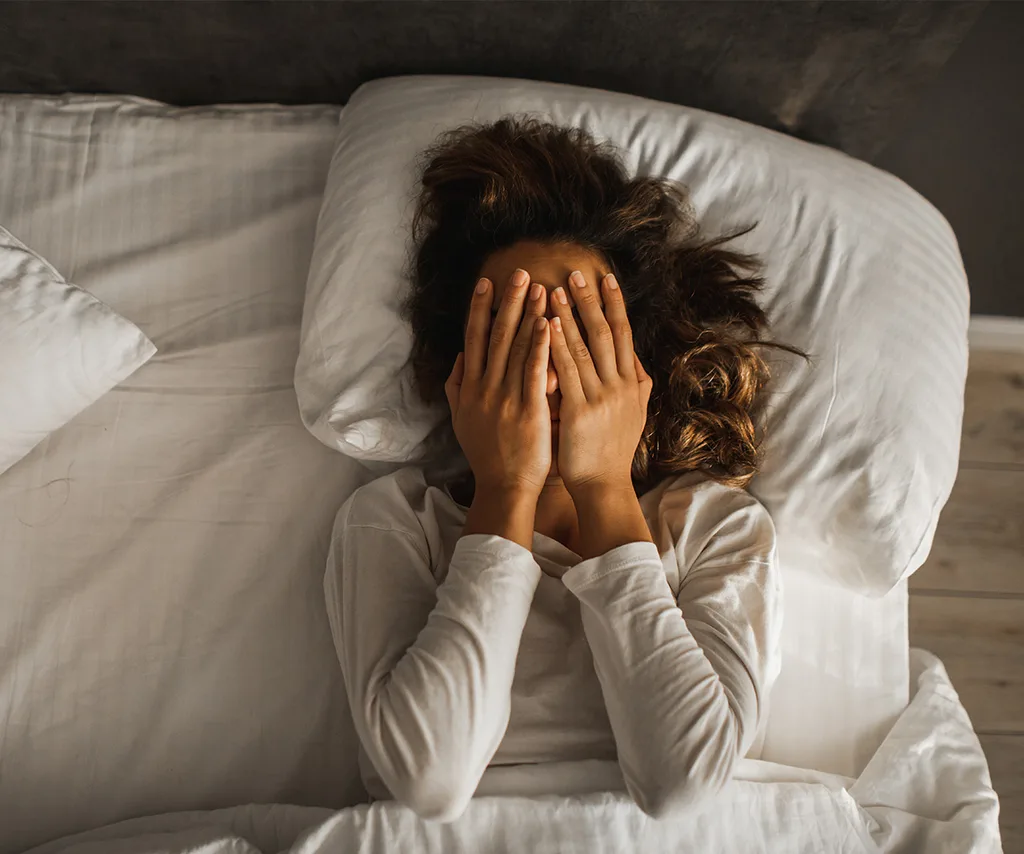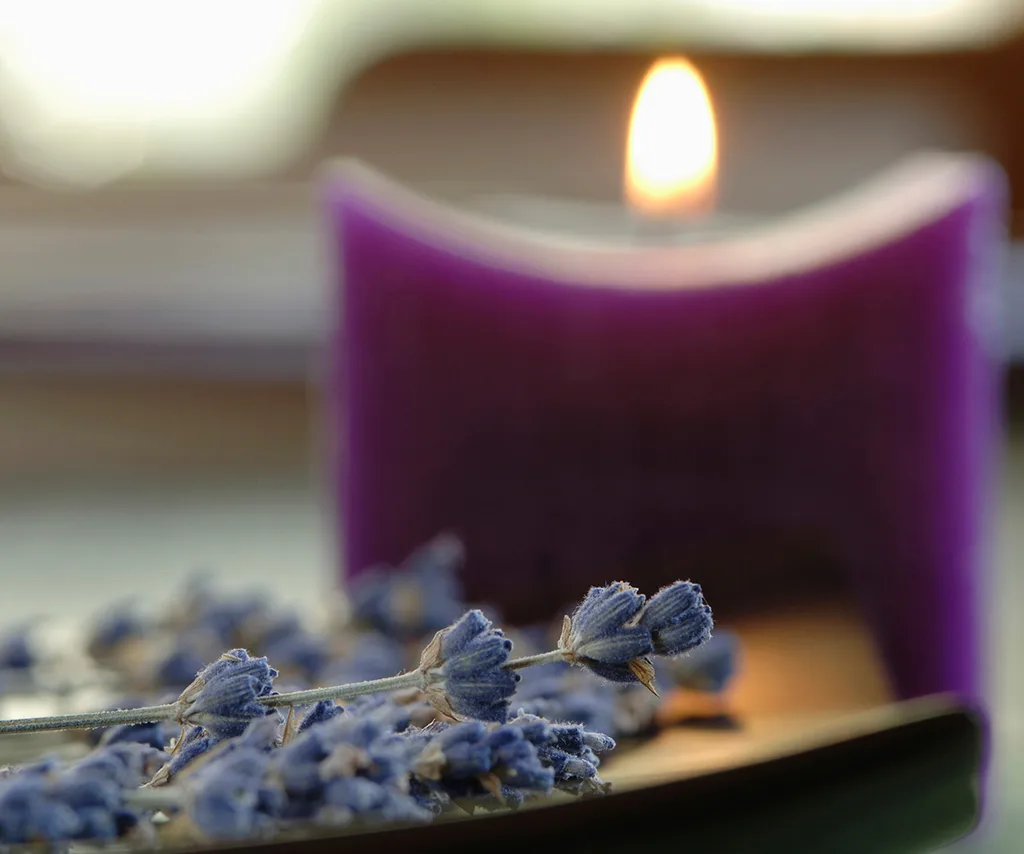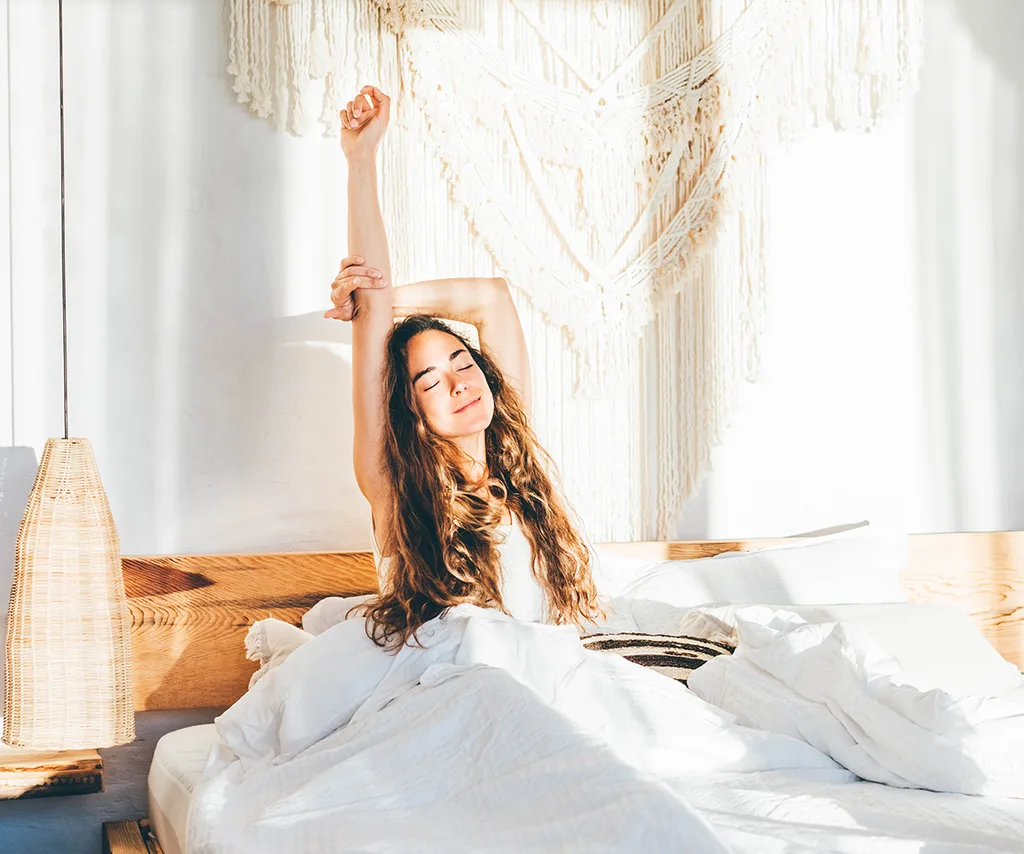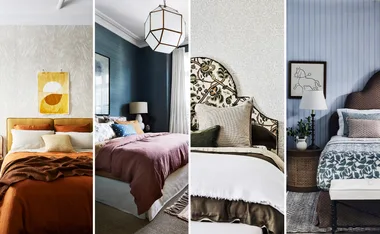The line at the cafe is longer than usual and I’m already late. Again. But I can’t start the day without coffee so I join the queue and will it to move quickly, yawning as I give myself my usual reprimand — tonight I will go to bed early. Tonight I will get a good sleep. I order a latte and request sugar for extra energy because I haven’t eaten breakfast. Caffeine transfusion complete, I retire to my desk and tap morosely at my keyboard for half an hour until my brain joins the rest of me in the land of the living.
If this morning routine sounds familiar, you might be among the 40 per cent of the adult population that identifies as a night owl. You prefer to sleep late, you’re slow to get going in the morning and around 10pm, when you should go to bed, you’re just getting your second wind.
It’s not a new concept, the early bird/night owl divide, but an emerging area of sleep research is discovering there’s far more to the phenomenon than just preference, and that your sleep rhythm, or chronotype, can affect everything from your health and mood to the economy.
“A common misconception is that these two different groups are a choice – night owls just get up late because they’re lazy,” says Monash University researcher Dr Elise FacerChilds. “That’s a real stigma in society that we need to come away from. Your chronotype is influenced by your environment as well as physiology, biology and some genetic links.”
And scientists now know there are fundamental differences between the brains of night owls and day larks. “This is so relevant to every one of us,” says Dr Facer-Childs. “A lot of society is functioning at a suboptimal level. A big proportion of both day larks and night owls aren’t sleeping as long as they should. How often have you heard people say, ‘I’ll sleep at the weekend, I’ve got too much to do’?”

40 per cent of the adult population identifies as a ‘night owl’.
(Credit: (Image: Getty))Night owls face a double disadvantage because the nine-to-five workday forces them out of their natural sleep cycle, meaning what little shut-eye they do get occurs at the wrong time for their biorhythms.
“If somebody can’t get to sleep until one in the morning and they have to wake up at six for work, they’re waking up at the wrong time for their body,” Dr Facer-Childs says. This has ramifications beyond productivity. Night owls aren’t as healthy as their lark friends.
Studies suggest late risers have higher rates of anxiety, stress, depression, substance abuse, heart disease and type-2 diabetes. Researchers who examined nearly half a million participants of a UK Biobank study found night owls have a 10 per cent higher mortality rate than larks.
A study of 32,470 American nurses found the night owls were less likely to be married and more likely to be smokers and live alone. Yet another study, conducted by Western Sydney University, went so far as to suggest late sleepers tend to exhibit more of the ‘dark triad’ personality traits of narcissism, Machiavellianism and psychopathic tendencies.
Given all this bad press, night owls might rightly wonder whether we can shift our body clocks, and the short answer is yes. Dr Facer-Childs recently undertook an experiment to see if she could change the sleeping patterns of extreme night owls. In just three weeks, she was able to get the participants out of bed a full two hours earlier than their normal waking time.
Given what I have learned about the health impacts of my night-owlish ways, I have decided to see if Dr Facer-Childs’ methods will work for me. So I begin my own sleep experiment.
The making of a lark
I don’t have much faith in my ability to stick to an earlier timetable, but everything Dr Facer-Childs’ study involved was a simple lifestyle intervention that should be easy for anyone to adopt. There was no fancy sleep tech, and no lab conditions.
“We wanted this to be as realistic for the participants as possible,” she says. I won’t have a team of researchers helping me stick to my regime so I put a few extra provisions in place. The first thing I do is buy a lavender candle. I’ve always been sceptical of aromatherapy but American chronotype specialist Dr Michael Breus is evangelical about lavender’s powers as a sleep aid.
“Lavender works as an anxiolytic (an anxiety reliever) and as a sedative to increase relaxation,” he writes in his book, The Power of When, citing studies that show lavender can improve sleep quality and length of time spent in deep, slow-wave sleep.
Our body clocks thrive on routine so my plan is to light the candle each night around 9pm, approximately one hour before I hope to drift off to sleep. I usually start trying to sleep around midnight, and often don’t fall asleep until one, so nine is a big jump.
In addition to filling my room with fragrant, sleep-time smells, the candle will allow me to turn off the overhead light which suppresses melatonin, and complete my evening tasks under a gentle glow. Of all the variables Dr Facer-Childs’ manipulated to shift sleeping patterns, light exposure was the big one.
“We know that lighting is one of the biggest factors that influence our body clocks,” says Dr Facer-Childs. “It’s the light-dark cycle that resets us every day.” Most of us are familiar with the term “circadian rhythms”, which follow a near-24-hour cycle. The 24-hour rise and fall of the hormones melatonin and cortisol dictate our waking and sleeping hours and they are stimulated by the presence (cortisol) or absence (melatonin) of light. “The sun comes up in the morning, cells in the eye send signals to the brain and tell us to wake up,” Dr Facer-Childs says.
When I go to bed I wear an eye mask to block out street light, but this means I’m denying my body exposure to the ambient light that creeps into my bedroom when the sun rises. So for the duration of this experiment, I’m ditching the mask.
But there’s another form of light more insidious than the downlights in the ceiling – the glow of my mobile phone. For a phone addict like me, ridding myself of this distraction is going to be a challenge. I visit Sleep for Health managing director Carmel Harrington and ask if she can recommend which apps are best for reducing the blue light so I can look at my phone after sundown.
She quickly disabuses me of this plan, explaining that no filter or setting will cancel out what this tiny, strobing computer is doing to my brain. “People are always looking for solutions so they don’t have to give up their mobile devices,” Dr Harrington says. We come up with a rule: the phone is not allowed in my bedroom.
WATCH: Ten ways to get a better sleep (Article continues after video)
First night
I head home with thoughts of a rich slumber, followed by a day of unprecedented productivity. I put fresh sheets on the bed to lend a sense of ceremony to the start of the experiment, and climb in, excited about my new, healthy life. But sleep doesn’t come. Not even close. I’m still tossing and turning well past one.
What feels like three seconds after I fall asleep my alarm starts blaring. Normally, I have an alarm, a back-up alarm and multiple snoozes, but I’m committed to the experiment, so at the first brain-rattling bleep I throw off my doona and emerge into the horrible morning. I grumpily drag myself to the kitchen and fumble around for the healthful supplies I purchased yesterday when I was full of good\ intentions.
Meal regulation was another of the experiment’s interventions and breakfast is arguably the most important one. Body clocks, Dr Facer-Childs explains, are plural. There are clocks in all of our organs and part of maintaining a good sleep pattern is ensuring they’re all in sync. “The master clock – the conductor of the orchestra – is in the brain,” she says. “Some great research has come out from the UK showing mealtimes influence the clock in the liver.”
I rarely eat breakfast which is a trait common to night owls. “The light exposure tells the brain to wake up. The breakfast tells the liver,” says Dr Facer-Childs. “Getting the orchestra playing together helps the body know what time it is for itself.” She explains that I’ll also have to change my normal dinner time from around nine to around seven to trick my liver into thinking it’s almost bedtime. Carbloading late at night with a big meal confuses it.
I arrive home on Tuesday night tired and fall easily asleep before 11. I wake around seven, feeling rested and smug. On Wednesday night I am again quite alert late into the night but, my candle lit, I make myself some hot chocolate and soon enough I fall asleep.

“Lavender works as an anxiolytic (an anxiety reliever) and as a sedative to increase relaxation,” according to Dr Michael Breus.
(Credit: (Image: Getty))Wakeful weekends
Saturday arrives and I succumb to my natural urge to sleep past nine. Saturday night involves a dinner party that rolls past midnight, so on Sunday I don’t emerge from my bed until well after 10. Okay, 11. Getting up on Monday morning is hell. This is due to a phenomenon Dr Facer-Childs warned me about called social jetlag.
“Social jetlag is the misalignment of social and biological time,” she explains. “For example, if somebody wakes up at six o’clock in the morning for work during the week and then at the weekend they sleep in until 10, that’s a four-hour time difference. That’s the equivalent, almost, of someone jumping on a plane on a Friday evening, flying four time zones and then on Sunday coming back. That’s basically what you’re doing to your body. Then you go back to Monday and you try waking up at six and you really struggle. Those Monday blues, they’re a real thing.”
Like other sleep dysfunctions, social jetlag has been linked to obesity, diabetes and cardiovascular disease. Unlike the other sleep issues I’ve been dwelling on, social jetlag is not limited to night owls.
The key to changing your body clock is consistency, says Dr Harrington. By sleeping late on the weekend I’ve undone all the progress I made the week before. Frustratingly, it’s easier for early birds to reset their clocks than it is for owls.
“With an owl, the genetic setting seems to be quite strong. You can miss one night and go right back to square one. Owls have to be really diligent,” Dr Harrington says. I note with annoyance that, as the day wears on, I’m naturally perking up. I hope I’m not buzzing with energy when I try to go to sleep later because I have a very unpleasant task waiting for me in the morning.
Early to rise
There was one part of the experiment I was dreading. In order to embrace Dr FacerChilds’ interventions, I need to embrace early morning exercise. “We know that exercise can play a role in helping shift biological rhythms, so we targeted exercise in the morning as opposed to the evening,” Dr FacerChilds says.
When my alarm rips me from my dreams at 5.30am, I curse the experiment but once I’m at the gym it doesn’t take long before I get into a rhythm and I’m soon feeling quite awake. Eager to learn how I can further exploit my body clock, I do an online test, devised by Dr Breus to determine sleep chronotypes (thepowerofwhenquiz.com). Dr Breus says humans can be grouped into four chronotypes depending on the timing and pace of their body clock.
Most people, he says, are Bears, whose natural sleep pattern follows the sun. Lions are leaders, whereas Dolphins are the highly strung, type-A high achievers. I click on my results and learn I am a Wolf, one of the two types that follow a night-owl sleeping pattern (the other is the Dolphin). Nocturnal, cunning and out of sync with 80 per cent of the world, my lupine sisters and I apparently have a tendency to fly off the handle. I feel judged. But I have allies in the scientific community.
One of the lead authors of the UK Biobank study, Kristen Knutson, says we have to stop thinking of being a night owl as a negative thing. “If we can recognise that these chronotypes are, in part, genetically determined and not just a character flaw, jobs and work hours could have more flexibility for owls,” Dr Knutson says. “They shouldn’t be forced to get up for an \ 8am shift.”
Normally, when the office begins to empty around 5.30, I’m still feeling quite productive. But today, post workout, my concentration is starting to falter. By 6pm I am dead on my feet. I make dinner, eat it slothfully in front of the television, wash up, shower and light my candle before climbing into bed. I’m drowsy for a short while and soon nod off.

You can become an ‘early bird,’ if you wish. You just need to adjust your routine.
(Credit: (Image: Getty))Ever an owl
The next weekend, I organise a 9am Sunday brunch with a group of friends to force myself out of bed. I hold court explaining my newfound fanaticism and everyone nods sagely and volunteers their sleep preference. There is a pretty even split of owls and larks. One lark has a partner who is a night owl and we briefly discuss the pros and cons of sharing your life with a different kind of bird.
This is something that is also under investigation by Monash. “Communicating is the key,” says Dr Facer-Childs. And exploit it, she advises. “In parenthood, if you have two different chronotypes, you could completely use that to your advantage.”
Nearly half of us are night owls and one to five per cent of the population are super-early birds (a group that also struggles to fit in with the normal workday). But there are ways to adapt. Dr Harrington says research indicates we often make life choices that suit our sleeping style. “There are lots of owls in the legal world,” she says. “Lots of larks are teachers.”
Dr Harrington is an owl, and has learned to manage her chronotype but she confides that when she has a large project to do she tends to fall into her old ways of working at night when her brain is naturally sharpest. I reflect on this as I sit, propped up in bed on the last night of the experiment, my mind whirring and resisting the new structure I’ve tried to impose.
Being a night owl, I think, isn’t all bad moods and poor health. Being alert at night can be marvellous. The world is quiet, and an owl can get a lot done alone but for the companionable moon.
One of the studies I’ve read recommends allowing owlish types to start and finish work later. I agree and feel vindicated. But with no sign the world will change any time soon, I’m grateful for the tools Dr Facer-Childs and Dr Harrington have given me. I may never be a lark, but I can make my life easier by going to bed a little earlier, I think, as I switch off my phone, and light my lavender candle.

